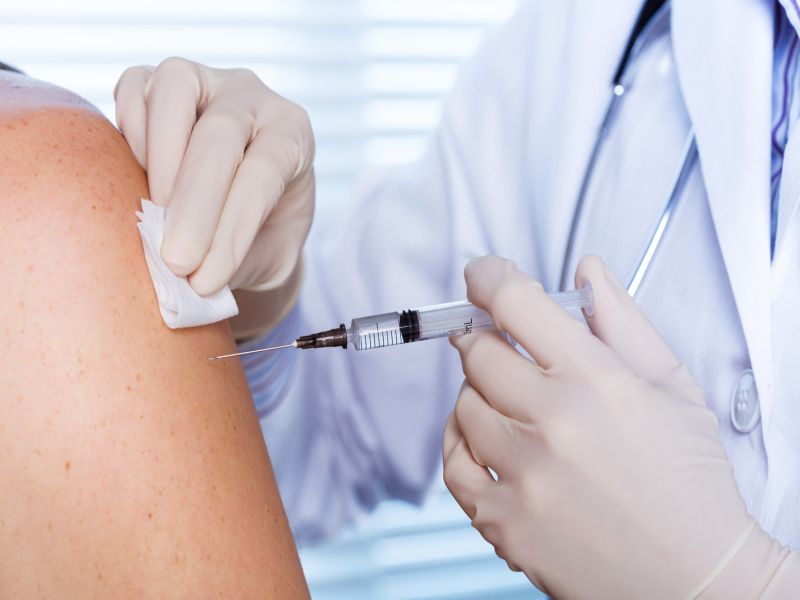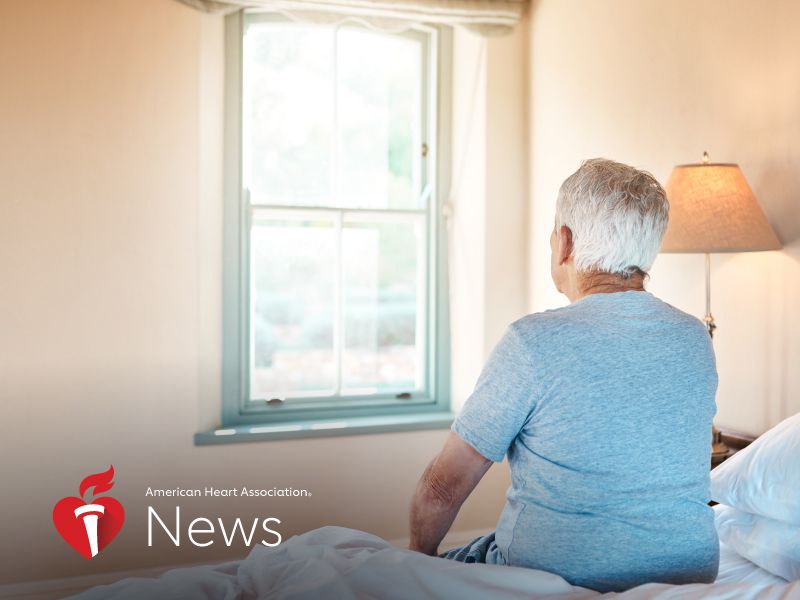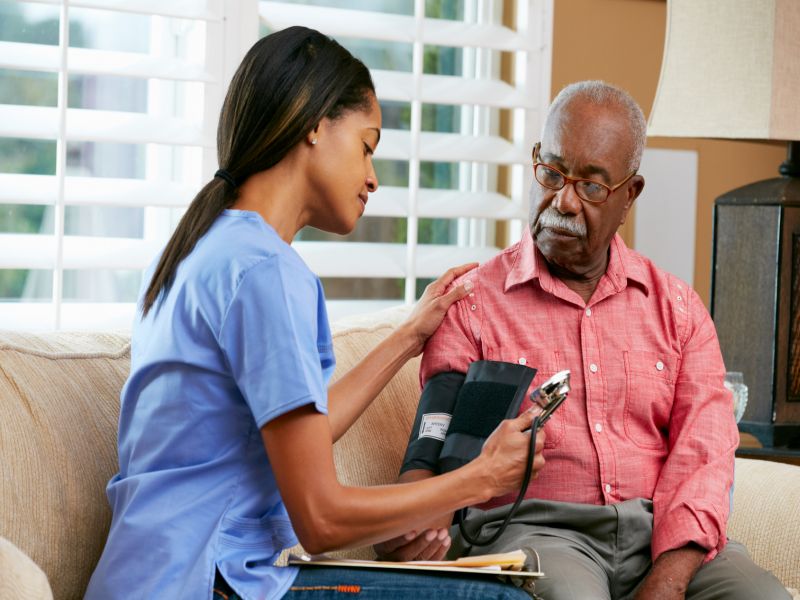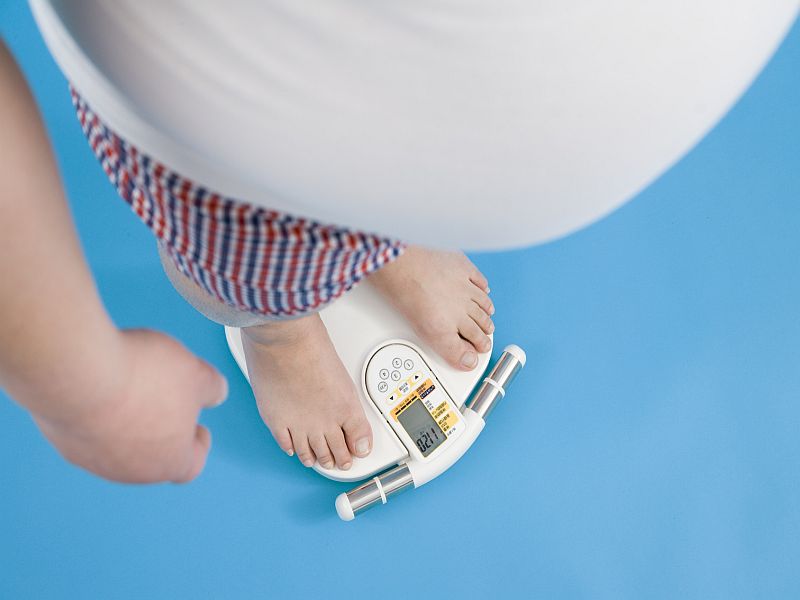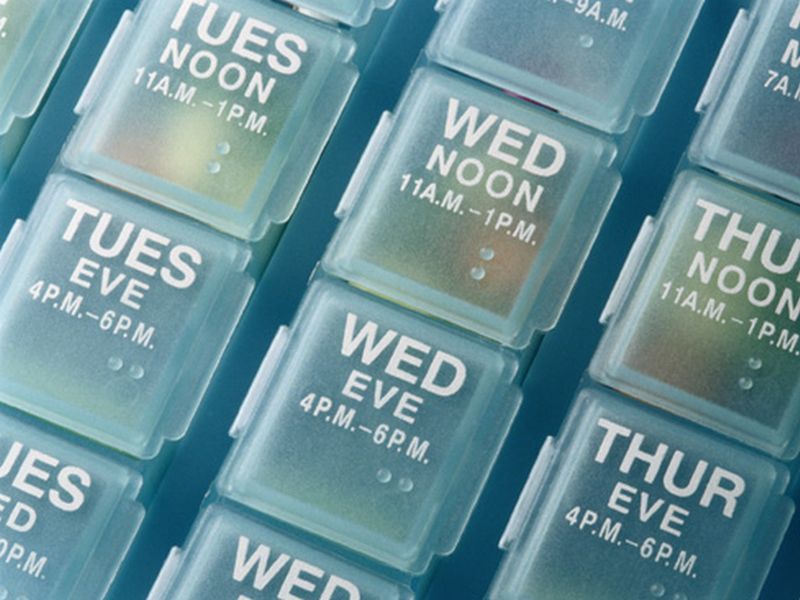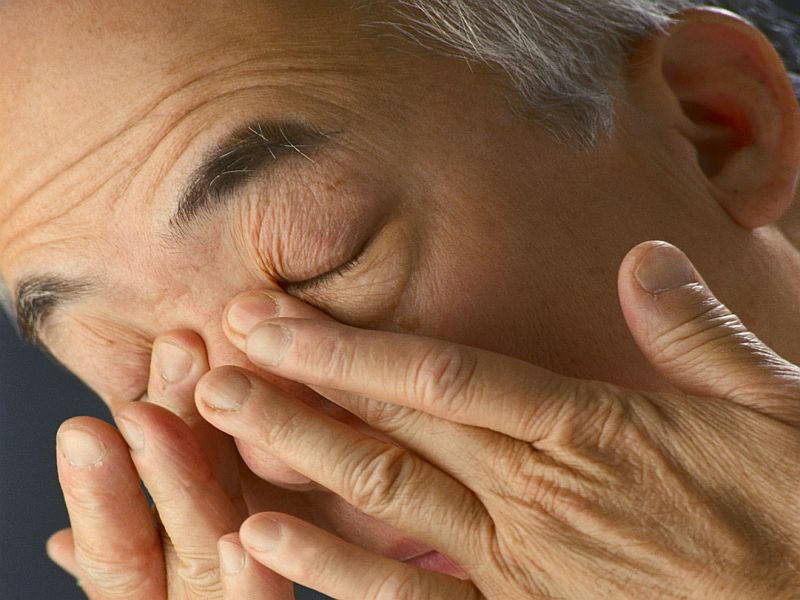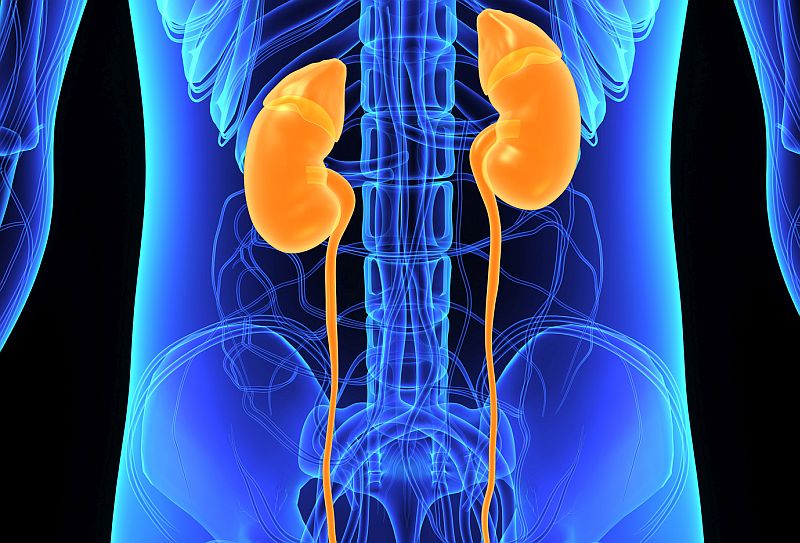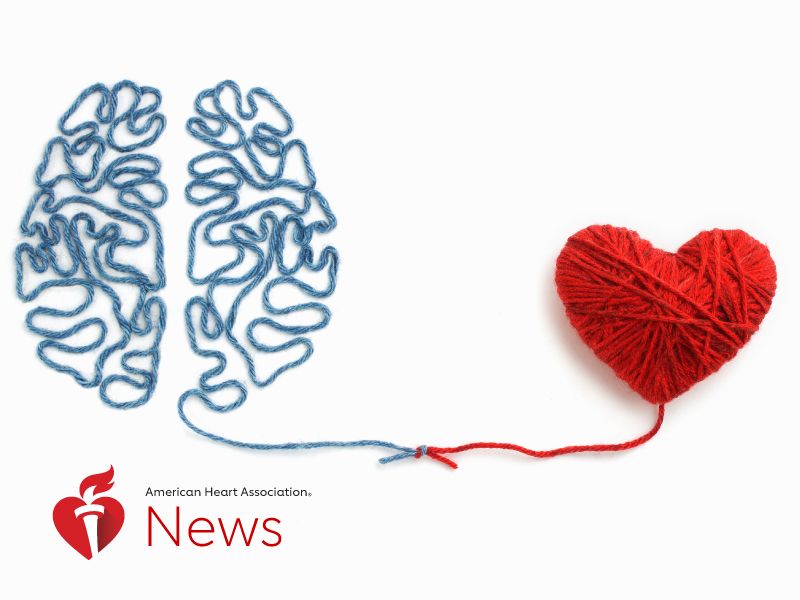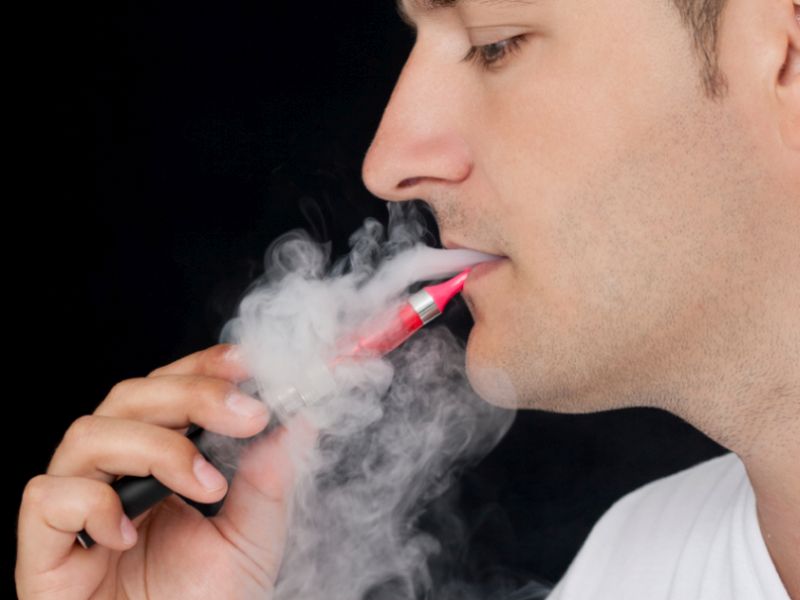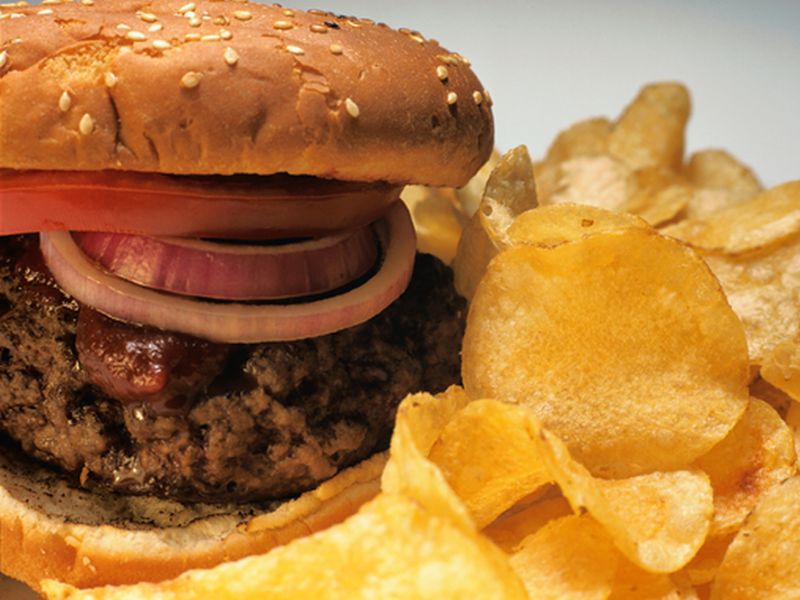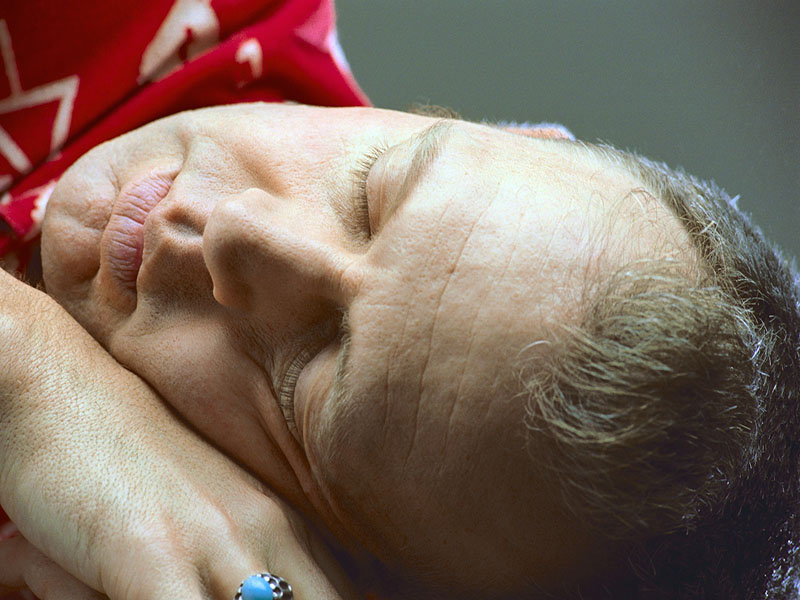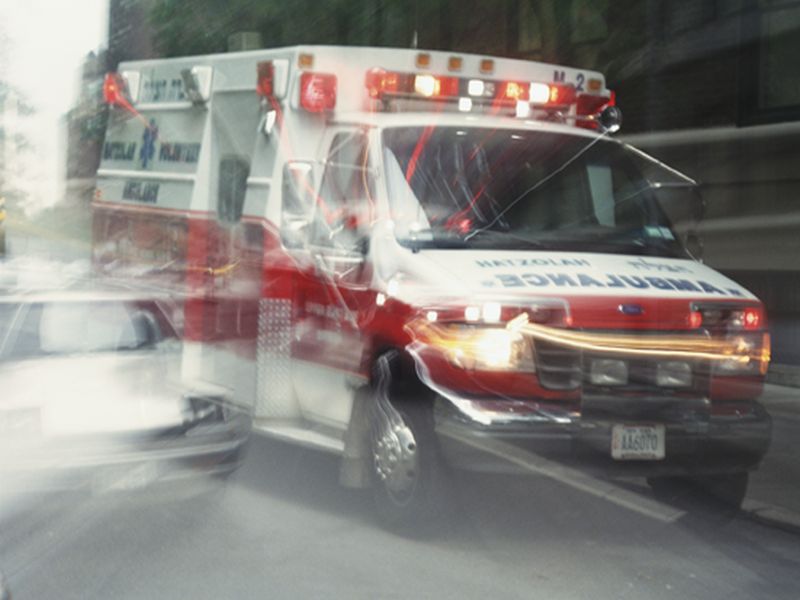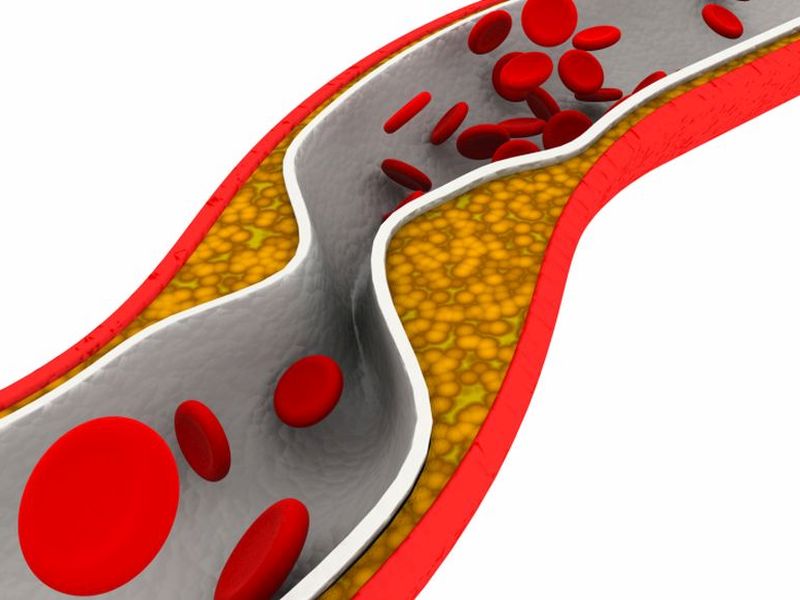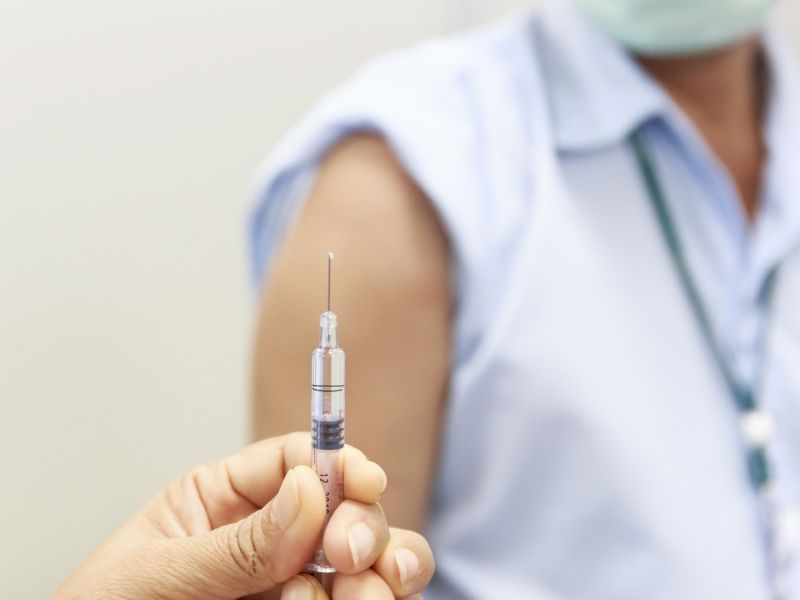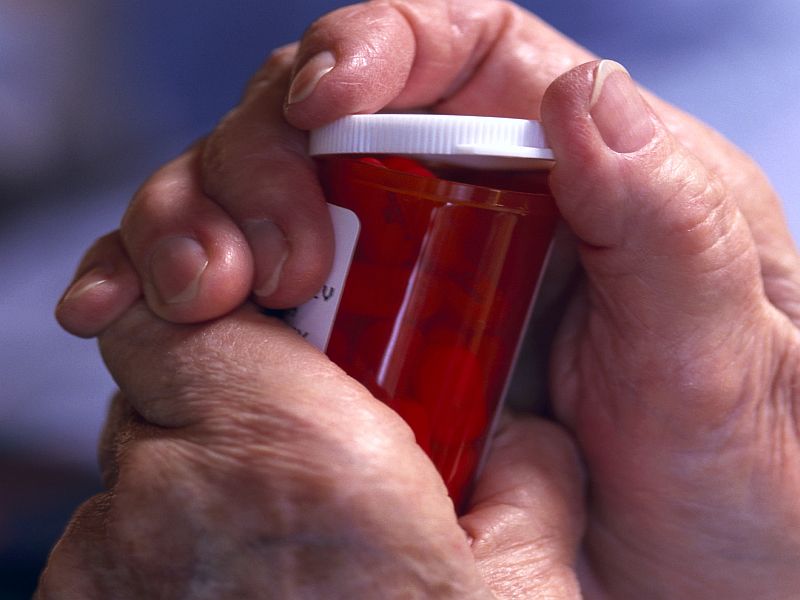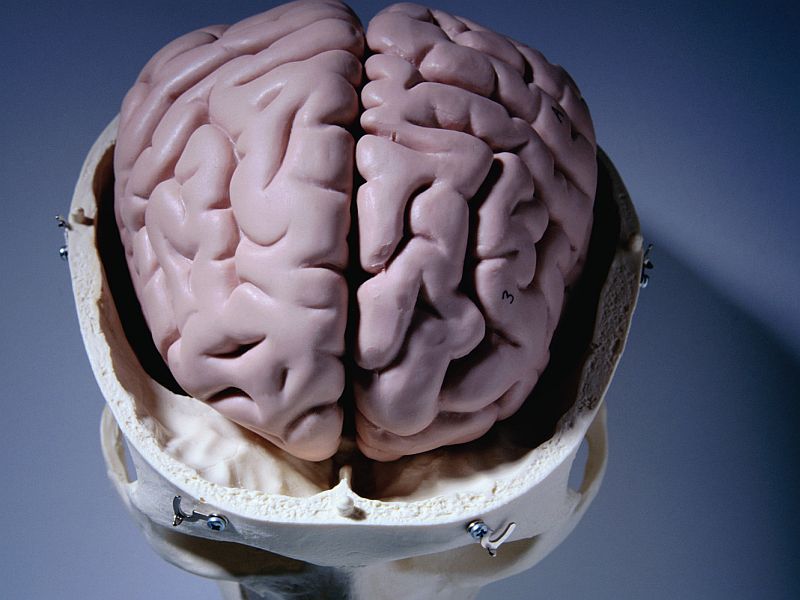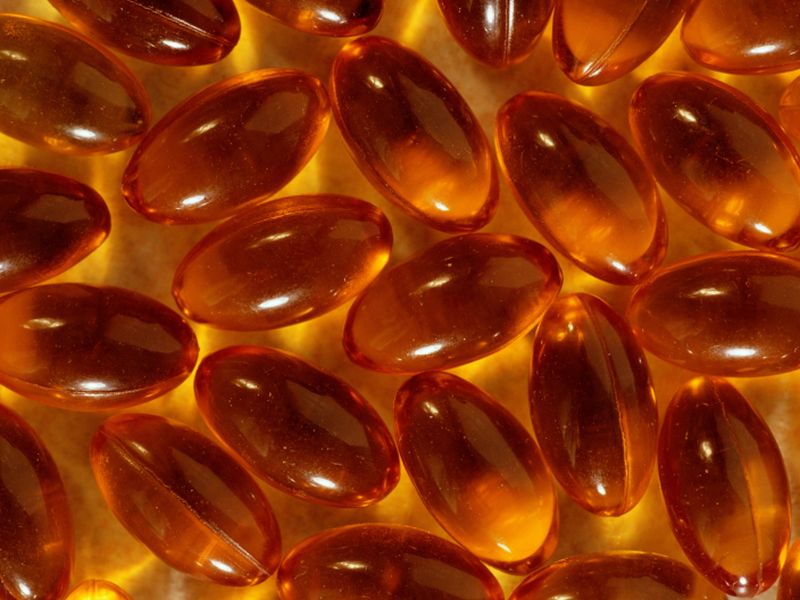Get Healthy!
510 Results for search "Heart / Stroke-Related: Stroke".
Health News Results - 510
Seniors who get the shingles vaccine may gain stroke protection as well, a new study suggests.
Shingles is a viral infection tied to heightened risk of stroke. But overall stroke risk dropped 20% among patients under age 80 who got the shingles vaccine. In patients 80 and older, risk was cut by about 10%, said researchers led by Quanhe Yang, a senior scientist at the U.S. Cent...
- Alan Mozes
- |
- February 12, 2020
- |
- Full Page
Americans who grew up in the swath of the South known as the Stroke Belt are more likely to develop thinking declines later in life, even if they moved away as adults, a new study suggests.
But people who grew up elsewhere and moved to the Stroke Belt are less likely to succumb to so-called cognitive decline than if they'd lived there all their lives, researchers found.
"A...
- Steven Reinberg
- |
- February 12, 2020
- |
- Full Page
Depression among stroke survivors peaks during the early months of recovery and persists for a full year, a new study finds. Experts say better screening methods are needed for this population to more effectively prevent and treat depression.
"We found that depression is both prevalent and persistent during the first year following a stroke," said lead researcher Liming Dong, a resea...
- |
- February 12, 2020
- |
- Full Page
After a weekend of football-shaped pigs-in-a-blanket, you probably don't want to hear that the latest study on red and processed meat found that these foods boost your risk of heart and blood vessel disease.
The study also found that meat ups your risk of premature death.
"Consume red and processed meats in moderation because even two servings or more a week are associated...
- Serena Gordon
- |
- February 3, 2020
- |
- Full Page
It's no yolk: Americans for decades have gotten dietary whiplash from the back-and-forth science on whether eggs are good for them.
But a major new study will have many egg-lovers relieved: You can enjoy an egg a day without having to worry about your heart.
"Moderate egg intake, which is about one egg per day in most people, does not increase the risk of cardiovascu...
- Robert Preidt
- |
- February 3, 2020
- |
- Full Page
A common condition called "orthostatic hypotension" -- a sudden drop in blood pressure when standing up -- has long been tied to the potential for dangerous falls in older people.
But a new study suggests that doctors who manage blood pressure in older patients shouldn't worry that their treatments are more hazardous for folks with the condition.
It "was not associated with ...
- E.J. Mundell
- |
- January 28, 2020
- |
- Full Page
A flight attendant on a recent commercial flight sent out the message: "Is there a doctor on board?"
An otherwise young, fit male passenger had suddenly lost the ability to move the muscles on the right side of his face, including the ability to close his right eye. He was drooling and had slurred speech.
Dr. Alan Hunter, who happened to be on the flight, answered the flight...
- E.J. Mundell
- |
- January 27, 2020
- |
- Full Page
After a hemorrhagic stroke, often called a "bleeding" stroke, young black and Hispanic people are less likely than white people to be disabled or die within the following three months, a new study finds.
Hemorrhagic strokes occur when a blood vessel ruptures, causing bleeding in the brain. This type of stroke is less common than ones caused by blood clots, but harder to treat and mor...
- Steven Reinberg
- |
- January 23, 2020
- |
- Full Page
If your blood pressure numbers swing from low to high and back again in your 20s, that could bode ill for heart health in middle age, new research shows.
In fact, every 4 mm Hg spike in systolic blood pressure -- the top number in a reading -- during young adulthood was tied to a 15% higher risk for heart disease in midlife, the research team found.
Study lead author Dr...
- E.J. Mundell
- |
- January 22, 2020
- |
- Full Page
For heart attack survivors, a fat belly could mean another one is likely, a new study suggests.
Earlier studies have shown that abdominal obesity puts people at risk for their first heart attack. This new study shows it also ups the odds for a second one, researchers say.
"Abdominal obesity not only increases your risk for a first heart attack or stroke, but also the risk ...
- Steven Reinberg
- |
- January 21, 2020
- |
- Full Page
Over 2 million Americans with heart disease have used marijuana, despite evidence that it might be harmful to them, a new research review finds.
The report, published in the Jan. 28 issue of the Journal of the American College of Cardiology, comes at a time when many states are legalizing medicinal or recreational marijuana use. And, some studies suggest, a growing number of Am...
- Amy Norton
- |
- January 21, 2020
- |
- Full Page
Patients taking the blood thinner warfarin have been told that it should be taken at night, but a new study found the time of day doesn't matter.
"Whether warfarin is taken in the morning, or the evening, its therapeutic effect is the same," said lead researcher Dr. Scott Garrison, an associate professor of family medicine at the University of Alberta in Edmonton, Canada.
...
- Steven Reinberg
- |
- January 17, 2020
- |
- Full Page
Popular media often portrays heart disease as a man's problem, but new research suggests that women's blood vessels actually age faster than men's do.
The new study found that blood pressure started increasing in women as early as the third decade of life, and it continued to rise higher than blood pressure in men throughout the life span.
The researchers said that this...
- Serena Gordon
- |
- January 15, 2020
- |
- Full Page
Feeling exhausted, with too few hours in the day to do what needs to be done?
Be careful of burnout -- especially after a new study finds it can raise your risk for the dangerous irregular heartbeat known as atrial fibrillation.
"A-fib" -- long tied to higher odds for heart attack and stroke -- is the most common form of heart arrhythmia. It's estimated that 10 million peopl...
- Robert Preidt
- |
- January 14, 2020
- |
- Full Page
Heart disease may increase your odds for kidney failure, a new study finds.
"Individuals with a history of cardiovascular disease should be recognized as a high-risk population for kidney failure," said study leader Dr. Junichi Ishigami, of Johns Hopkins Bloomberg School of Public Health in Baltimore.
"Physicians should be aware of cardiovascular disease as an important ris...
- Steven Reinberg
- |
- January 9, 2020
- |
- Full Page
Women and men have a much higher risk of dangerous heart problems soon after their first stroke compared to people without stroke, even if they don't have obvious underlying heart disease, a study has found.
Researchers investigated data on more than 93,000 people age 66 or older in Ontario, Canada. The group included more than 12,000 women and 9,500 men who had an ischemic stroke, t...
- |
- January 9, 2020
- |
- Full Page
E-cigarettes are not a safer alternative to tobacco as far as strokes are concerned, according to a new study.
Young adults who use tobacco and e-cigarettes are nearly twice as likely to have a stroke as those who smoke only traditional cigarettes and almost three times as likely as nonsmokers, researchers say.
"While we already know that combustible cigarette use is one o...
- Steven Reinberg
- |
- January 7, 2020
- |
- Full Page
"Space medicine" took another small step forward after an astronaut who developed a blood clot in a neck vein was diagnosed and treated while onboard the International Space Station (ISS), physicians at NASA and elsewhere report.
The research team didn't reveal the astronaut's name, age or gender, but said the ISS crew member developed an asymptomatic thrombosis -- blood clot -- in th...
- E.J. Mundell
- |
- January 2, 2020
- |
- Full Page
Michelangelo's David is perhaps the world's most famous statue, gazed upon by millions over centuries.
And yet it's only this year that an American doctor has spotted an anatomical insight made by the artist -- one that's passed without notice on David for more than 500 years.
In the vast majority of sculptures, and in the everyday physiology of living people, the jugular ve...
- E.J. Mundell
- |
- December 26, 2019
- |
- Full Page
Heavy drinking may damage heart tissue, researchers warn.
Previous studies have shown that heavy drinking increases the risk of heart failure, high blood pressure, heart attack, stroke and heart rhythm disorders, but there has been little study into why it poses such a risk to heart health.
In this study, researchers analyzed three blood indicators of heart damage in more th...
- Robert Preidt
- |
- December 24, 2019
- |
- Full Page
Healthier eating could save the United States more than $50 billion a year in health care costs associated with heart disease, stroke, type 2 diabetes and related illnesses, according to a new study.
An unhealthy diet is one of the leading risk factors for poor health and accounts for up to 45% of all deaths from these cardiometabolic diseases, the researchers noted.
Bu...
- Robert Preidt
- |
- December 19, 2019
- |
- Full Page
Long hours spent working will do no favors for your blood pressure, a new Canadian study suggests.
The five-year study tracked the working hours and blood pressure readings of 3,500 white-collar workers at three public institutions in the province of Quebec.
Compared to those who worked less than 35 hours a week, those who worked 49 or more hours each week had a 70% high...
- Robert Preidt
- |
- December 19, 2019
- |
- Full Page
Birthdays are a time of celebration. But, according to a new study, a spring or summer birth date could mean a higher risk of dying from heart disease.
The reasons aren't clear, but might include factors such as seasonal fluctuations in diet, air pollution levels, and the availability of sunlight before birth and in early life, the study authors said.
For the study, the rese...
- Robert Preidt
- |
- December 19, 2019
- |
- Full Page
Good sleep patterns can help reduce your risk of heart disease or stroke, even if you're at high genetic risk, new research shows.
In fact, the study of several hundred thousand people found that having a "healthy sleep score" of 5 (on a scale of 0 to 5) appeared to reduce a person's odds for heart disease and stroke by about a third.
So, if better sleep does result in a hea...
- Robert Preidt
- |
- December 18, 2019
- |
- Full Page
If you're the kind of person who sleeps nine or more hours a night or takes long afternoon naps, you may want to worry about your stroke risk, a new Chinese study suggests.
According to the research, people who sleep and nap too long may increase their risk for stroke by 85%. Regular 90-minute midday naps can raise the risk 25%, compared with not napping or napping for only 3...
- Steven Reinberg
- |
- December 11, 2019
- |
- Full Page
The daily use of low-dose aspirin against heart disease may have taken another knock.
New research shows that the practice may not provide black Americans with any lowering of their heart attack risk.
Researchers analyzed 11 years of data from more than 65,000 people, ages 40-79, living in the American Southeast. More than two-thirds of the participants were black, and about...
- E.J. Mundell
- |
- December 11, 2019
- |
- Full Page
Heavy pot users are nearly two times more likely to have a heart attack after common types of surgeries as those who don't use the drug, a new study shows.
"While cannabis is often purported as being safe or benign, we don't fully understand the health implications of this drug, particularly in heavy users," said study author Dr. Karim Ladha, a clinician-scientist at the Li Ka Shing K...
- Robert Preidt
- |
- December 10, 2019
- |
- Full Page
If you're in the throes of a stroke, being stuck in an ambulance in big-city traffic is the last place you want to be -- unless you're riding in a specially equipped ambulance called a mobile stroke unit (MSU).
A new study reports that suspected stroke patients in New York City who were taken to a nearby hospital via MSU began receiving critical, lifesaving treatment about 30 minutes ...
- Elizabeth Heubeck
- |
- December 5, 2019
- |
- Full Page
Rising levels of cholesterol among young adults is strongly tied to long-term odds for the number one killer, heart disease, a new study finds.
The new global study involved data on more than 400,000 people from 38 different trials. Their health was tracked for an average of more than 13 years, but some were followed for up to 43 years.
The researchers looked especially at t...
- Robert Preidt
- |
- December 4, 2019
- |
- Full Page
Following a vegan diet for five weeks may decrease risk factors for heart disease, new research shows.
The study included 50 African Americans who were asked to eat only prepared meals delivered to their homes. A cardiovascular risk calculator was used to assess their risk of heart attack or stroke over the next 10 years. For 36 participants who had pre- and post-diet risk scores, th...
- |
- December 3, 2019
- |
- Full Page
Millions of Americans have the potentially dangerous irregular heartbeat known as atrial fibrillation.
Now, research suggests that being obese might undercut the effectiveness of certain drugs meant to treat AFib.
The new study followed more than 300 patients listed in the University of Illinois at Chicago's AFib Registry. Researchers found that a class of medicines called s...
- Steven Reinberg
- |
- December 2, 2019
- |
- Full Page
Middle-aged men who maintain their muscle mass may lower their risk of heart disease as they get older, a new study suggests.
Beginning in the mid-30s, muscle begins to decline by about 3% each decade. Previous studies found that muscle mass is associated with heart attack/stroke risk, but those studies focused on people with heart disease.
In this new study, the researc...
- Robert Preidt
- |
- November 18, 2019
- |
- Full Page
A pricey high-tech pump that maintains blood flow during heart procedures could be more dangerous to patients than its low-tech predecessor, a pair of new studies finds.
The Impella device is associated with an increased risk of death, bleeding and stroke among patients undergoing angioplasty to re-open clogged arteries, two separate research teams concluded in presentations Sunday at...
- Dennis Thompson
- |
- November 18, 2019
- |
- Full Page
Bypass operations, angioplasty and the placement of artery-opening stents: For decades, millions of Americans have undergone these expensive, invasive procedures to help treat clogged vessels.
However, the results of a large and long-awaited clinical trial suggests that, in most cases, these procedures may not have provided any benefit over medications and lifestyle changes.
<...- Dennis Thompson
- |
- November 18, 2019
- |
- Full Page
A cheap drug that's been around for centuries as a gout treatment might also shield heart attack survivors from future heart crises, new trial results show.
The drug, colchicine, is derived from a plant called the autumn crocus, researchers explained Saturday at the annual meeting of the American Heart Association, in Philadelphia.
In the new trial, colchicine reduced by as ...
- Dennis Thompson
- |
- November 18, 2019
- |
- Full Page
Women are at higher risk for stroke and have different stroke symptoms than men. Now, new research suggests another difference: less benefit from a surgery used to treat carotid artery disease, a key risk factor for stroke.
The disease, also called carotid stenosis, is marked by fatty deposits, called plaque, that build up inside the neck arteries and increase stroke risk. Surgery to...
- |
- November 14, 2019
- |
- Full Page
A rigorous, new international study finds that, despite doctors' best efforts, many heart patients given standard drugs aren't meeting goals to lower their cholesterol and blood pressure levels.
The study involved nearly 4,000 patients, averaging 64 years of age, treated at centers around the world.
The researchers found that, one year into treatment, nearly half (48%) o...
- E.J. Mundell
- |
- November 13, 2019
- |
- Full Page
It seems like a no brainer: The flu shot protects heart patients from illness and death, so getting one should be the first thing they do every year before the season starts.
But new research shows that a third of these vulnerable patients don't get vaccinated.
"Patients need to be educated about the benefits of the flu vaccination," said study lead author Dr. Gowtham Grand...
- Robert Preidt
- |
- November 13, 2019
- |
- Full Page
In two studies, artificial intelligence was used with electrocardiogram (ECG) results to identify patients who are at increased risk for a potentially dangerous irregular heartbeat, and those more likely to die within a year, researchers say.
Using more than 2 million ECG results gathered over three decades, the team created "deep neural networks" that predict future events from an EC...
- Robert Preidt
- |
- November 12, 2019
- |
- Full Page
Smoking pot doesn't do your heart or your brain any favors, a pair of new studies shows.
Frequent pot smokers are more than twice as likely to suffer a stroke compared with those who don't partake, the first study found.
They're also more likely to be hospitalized for a dangerously erratic heart rhythm, according to the second study.
Both studies are to be presente...
- Dennis Thompson
- |
- November 11, 2019
- |
- Full Page
Late dinners and heavy evening snacking do no favors for women's hearts, a new study suggests.
Researchers at New York City's Columbia University found that those who ate more of their daily calories in the evening had a higher risk of heart disease.
One cardiologist who looked over the new findings wasn't surprised by the effect.
"The way metabolism, circadian rhy...
- Robert Preidt
- |
- November 11, 2019
- |
- Full Page
In more than half of all counties across the country, a growing percentage of middle-aged Americans are dying of strokes, according to a new study.
The study - which examined stroke mortality rates at the county level - reveals a statistical jump previously masked by national data showing a leveling off of stroke mortality rates following years of decline. The study was published Nov...
- |
- November 7, 2019
- |
- Full Page
Sleep problems could increase your risk for heart attack, stroke and other heart and brain diseases, a new study suggests.
It included 487,200 people in China, average age 51, with no history of stroke or heart disease. They were asked if they had any of these problems three or more times a week: trouble falling asleep or staying asleep; waking up too early; or trouble staying focused...
- Robert Preidt
- |
- November 6, 2019
- |
- Full Page
Millions of Americans take an ACE inhibitor to help curb their high blood pressure -- in fact, these drugs are the most widely used antihypertensives in America.
However, a new international study of nearly 5 million patients is casting doubt on the notion that the drugs are as effective as another class of blood pressure medicines.
Common ACE inhibitors include drugs such a...
- Robert Preidt
- |
- October 25, 2019
- |
- Full Page
Computer-driven artificial intelligence (AI) can help protect human brains from the damage wrought by stroke, a new report suggests.
A computer program trained to look for bleeding in the brain outperformed two of four certified radiologists, finding abnormalities in brain scans quickly and efficiently, the researchers reported.
"This AI can evaluate the whole head in one se...
- Dennis Thompson
- |
- October 24, 2019
- |
- Full Page
Young and middle-aged adults with post-traumatic stress disorder (PTSD) have an increased risk of stroke, new research suggests.
For the study, researchers analyzed medical data from more than 1 million veterans who served in Iraq and Afghanistan. They ranged in age from 18 to 60 years and two-thirds were white.
Of those, 29% had been diagnosed with PTSD. None had previo...
- Robert Preidt
- |
- October 17, 2019
- |
- Full Page
Menopause before age 50 puts women at increased risk of nonfatal heart conditions, and the earlier menopause occurs, the greater the risk, new research suggests.
Researchers analyzed data from more than 300,000 women who were part of 15 studies around the world, and found that women who reached menopause before age 50 were more likely to have a nonfatal heart problem, such as a heart ...
- Robert Preidt
- |
- October 10, 2019
- |
- Full Page
Don't get too mad at that new puppy who piddled on the rug or chewed up your favorite slippers.
In the long run, that scamp is going to help you live a longer and healthier life.
A pair of new reports found that dog owners have a lower risk of early death than people without canine companionship, particularly when it comes to dying from a heart attack or stroke.
Do...
- Dennis Thompson
- |
- October 8, 2019
- |
- Full Page
Starting in the late 1980s, stroke rates among older Americans began to fall -- and the decline shows no signs of stopping, a new study finds.
The researchers found that between 1987 and 2017, the rate of stroke incidence among Americans aged 65 and older dropped by one-third per decade. The pattern has been steady, with no leveling off in recent years.
It's not completely c...
- Amy Norton
- |
- October 1, 2019
- |
- Full Page
Millions of Americans pop a fish oil supplement each day, hoping to bolster their heart health. Now, research suggests they may be on the right track.
The most up-to-date review of data from 13 prior studies found daily omega-3 fish oil supplement use tied to a significant lowering of risk for heart attack, according to a team led by Dr. JoAnn Manson. She is a professor of epidemiolog...
- Alan Mozes
- |
- September 30, 2019
- |
- Full Page

